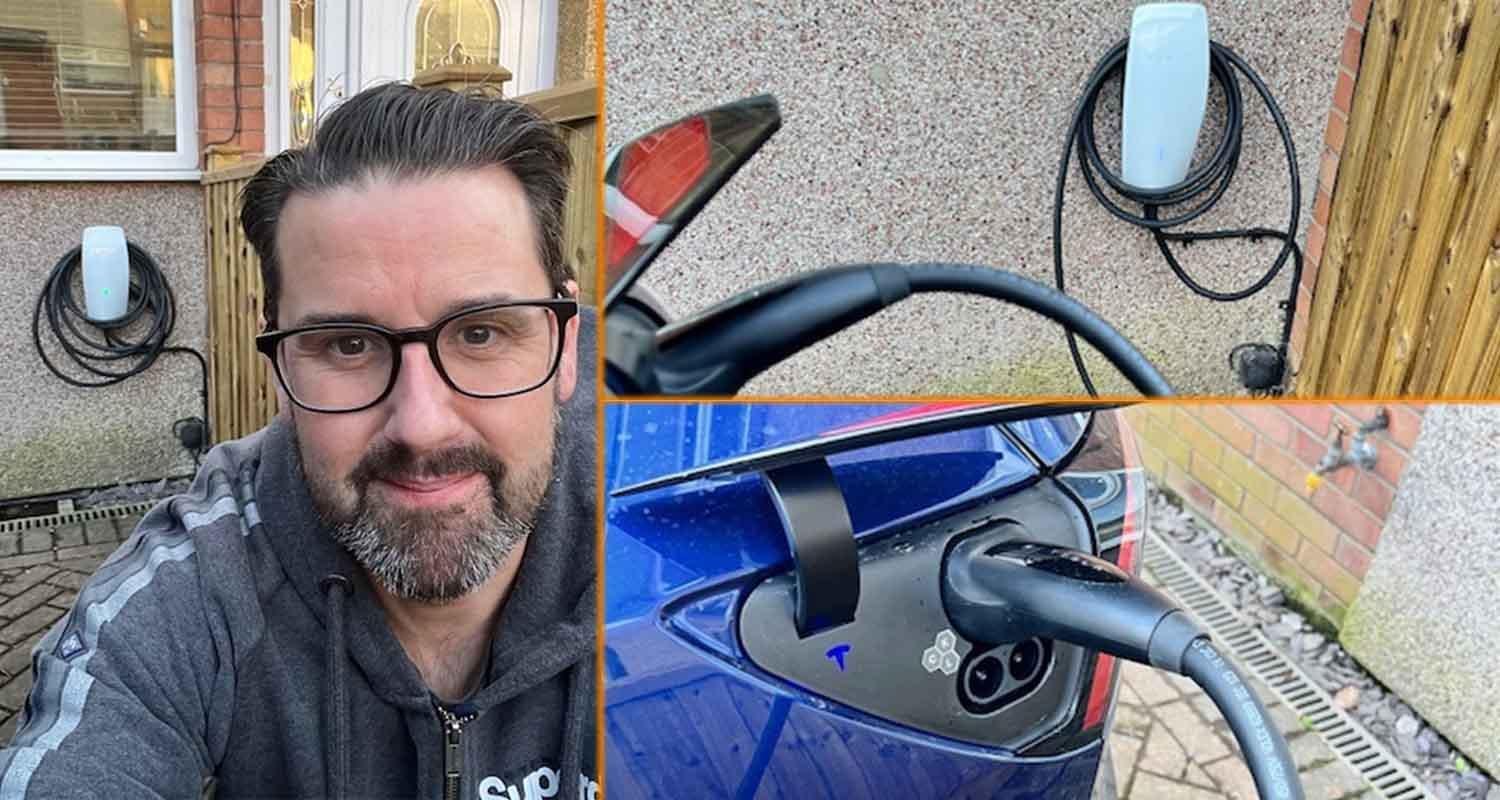James Court - EVA England Chief Executive

EVA England is fighting the corner of electric vehicle (EV) drivers across the country to help tackle some of the biggest issues standing in the way of more people switching to zero-emissions driving.
The not-for-profit community interest company was set up in June 2020 to offer a voice to current and prospective drivers in order to accelerate the transition to EVs in England. The association is led by James Court, who joined as chief executive in April 2022 and his background in politics and communications will be important assets to help drive positive change. Court worked in the Cabinet Office leading the department’s work on the UK’s COP26 transport policy.
He also helped build the UK Electric Fleets Coalition (UKEFC) representing the UK’s biggest vehicle fleet owners, campaigning on the ZEV mandate and phase-out dates for petrol and diesel engines. He also has years of experience working with EV charging companies and manufacturers as director of policy and communications at the renewables trade body the REA, setting up the EV Members Forum and starting the All-Party Parliamentary Group on EVs. EVA England membership is £20 a year, but it gives you access to over £500 worth of savings from charging, leasing, parking and solar panels, as well as exclusive discounts on essential products and services.
For example, EVA England members can access a 5% discount on our most popular Easee One when installed with Smart Home Charge.
What are the biggest barriers to EV adoption right now?
Court believes the perceived lack or real availability of public charging, the upfront cost of EVs and overall education are the biggest barriers to increased EV adoption in the UK right now. Year-to-date, as of March 2024, EV market share is at 15.5%, but the aim is to get to 22% this year. This is the level expected by the UK government as part of its Zero Emissions Vehicle mandate (ZEV), which came into force this year.
The ZEV mandate sets out the percentage of new zero-emission cars and vans manufacturers will be required to produce each year rising to 100% market share by 2035. Court said: “I think we are seeing prices come down for EVs and there’s also huge interest in used EVs now too. “Humans are risk averse and there is always going to be this fear of the unknown. I think there’s more work to be done at dealerships and with car manufacturers around education at the point of sale.
“Friends and family are so key for this as well. Nearly all statistics show that well over 90% of EV drivers would never go back to a diesel or petrol.” Court said charging infrastructure will get better and is rapidly improving all the time, but in order for EVs to truly reach the mass market, he wants infrastructure to get to a place where it’s better than the petrol or diesel alternative, “which I think we will get to”.
Powering Up the switch to EVs
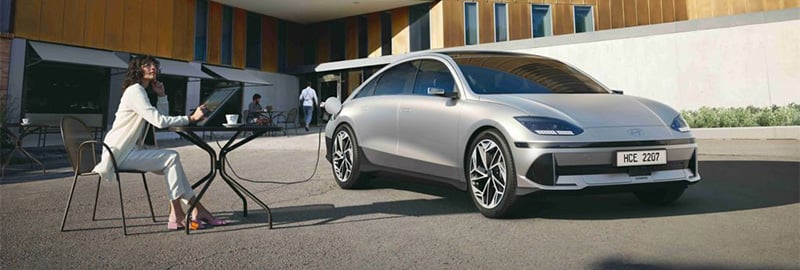
EVA England launched its Powering Up report in November last year and it was the organisation's first real push into lobbying for changes in UK government policy to help EV drivers.
It’s an area that is of huge interest to Court, who wants to push for the wants and needs for EV drivers as part of what could be included in political manifesto promises leading up to the UK’s general election later this year.
Some of these big policy ideas include introducing mandatory EV salary sacrifice schemes for medium and large businesses, a subsidised EV leasing programme for lower income households, as well as interest free loans to help further lower the barrier of entry to EV ownership for all.
After the publication of Powering Up last year, Court has now been invited onto a UK government working group looking into the barriers facing increased used EV sales.
Court said: “I particularly like the salary sacrifice idea because it’s a known quantity as a solution.
“Any company can introduce a scheme, but it might be outside the comfort zone of HR managers or chief operating officers.
“It really does just need one interested party within the business to get something like that going.
“It’s just trying to give people a bit of a kick in the right direction.”
Schemes like salary sacrifice allow employees at a company to proportion some of their monthly wages against the cost of a benefit, like an EV.
This lowers an employee's monthly take-home pay, meaning they also pay less in income tax and National Insurance each month. The benefit is they get access to an affordable brand-new EV.
- Read Smart Home Charge’s full guide on the benefits of EV salary sacrifice schemes.
The EV culture war
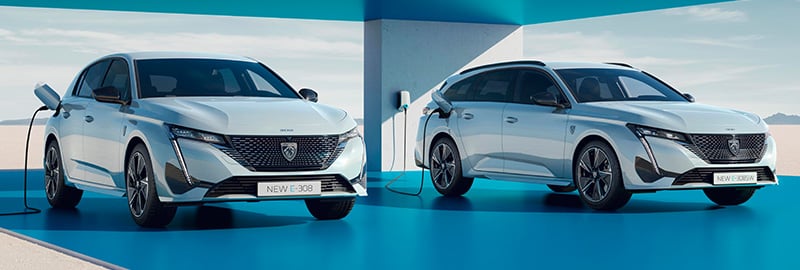
It’s clear EVs have been demonised by certain parts of the mainstream media.
Court said its unfortunate EVs have been “dragged into the culture war”, but is expecting this to ease.
He said: “Now a Conservative government has passed the ZEV mandate, we might see a more balanced view on EVs from certain elements of the press.
“Hopefully we can take EVs out of that area of disagreement. I’m hopeful we’ll see all political parties having positive policies around EVs.”
Court wants to see all parties compete with progressive and positive ideas around EVs, rather than using it as a combative part of the forthcoming general election.
Part of the work EVA England is doing right now is lobbying the political parties to include pro-EV policies as part of their manifesto promises for the first 100 days of government.
It’s making sure the concerns for current and future EV drivers are part of the priorities for who could be running the next Parliament.
Bringing everyone on the EV journey
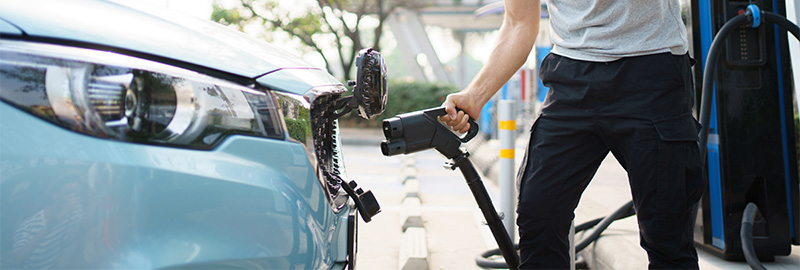
Court lives in North East London and drives a Kia e-Niro, but he doesn't currently have access to off-street parking and the benefits that come with having a smart home charger.
EVA England is petitioning nationally for over-the-pavement charging solutions to be offered more widely across the country, but he’s also personally petitioning with his local council to get a solution introduced.
Luckily, his area has five lamppost chargers that are within a minute walk, so he doesn’t currently struggle to top-up the e-Niro’s battery overnight.
The UK government recently expanded the grant funding available to those looking to subsidise the cost of a charger for an over the pavement solution.
EV drivers will require permission from their council to install a cross-pavement charging solution, with applications made online.
- Read Smart Home Charge’s full guide to EV charging grants and incentives here.
Court said: “Lamp post conversions are such a neat solution for putting local destination chargers in place at a lower cost.
“I want to look into more work on how we can strip away some of the costs and regulations to make it as easy as possible to convert more lamp posts to be able to become destination chargers.
“They’re not as fancy as other chargers, but my hope is that they will become so plentiful that it helps with that situation where you can’t access a home charger.”
Court is excited by the prospect of further innovation in the on-street charging space, agreeing that there will be a mix of solutions.
Without further innovation, Court is concerned there will always be a gap between those that have access to a home charger and cheaper domestic overnight charging costs, compared with those that have to pay more on the public networks.
EV brand competition
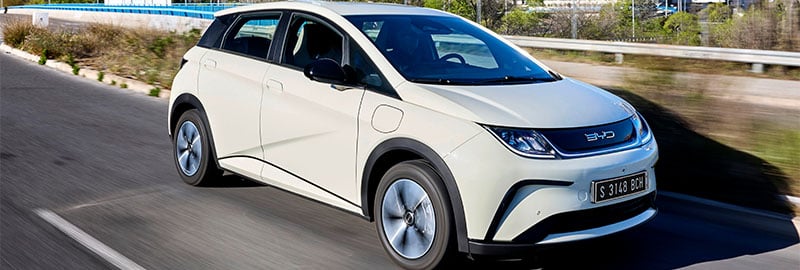
New Chinese brands like BYD and Omoda are lining up to offer new EVs to customers in the UK. Various other brands are also looking to launch in the next 12 to 18 months as competition between car brands heats up even further.
So many Chinese brands are looking to enter the market across Europe that the European Commission is currently investigating whether to impose punitive tariffs to protect European Union vehicle producers against cheaper Chinese (EV) imports.
Court said he can see the argument from both sides.
He said: “More EVs at a lower price point for customers can only be a good thing and these Chinese vehicles look fantastic.
“But I can also see that the only route to protecting automotive manufacturing in the UK is to heavily invest in EV production and compete on that front.
“There’s an argument in favour of tariffs and protectionism, but on the flip side of that shouldn't we also be advocating for EVs to be as cheap as possible through fair competition?”
Court thinks the key turning point for mass market EV adoption will be when the new price of a petrol car and an EV will be comparable. It’s already there in some cases with the used EV market where prices between comparable models are similar.
He said: “There’s a psychological thing around the sticker price and I think once we get to 2026/27, the prices will really come down and we’ll see the barriers to mass market EV adoption really fall down.”
Court’s tip for this year if you’re looking to buy an EV is to put some more research into looking at used EVs and what is available, but also to see what happens this year around incentives on new EVs too, particularly in the second half of 2024.
As the ZEV mandate is pushing car brands to reach 22% market share, there may be even further discounting, price reductions and incentives to tempt customers.
Accessibility and insurance

While there are many things EVA England is currently working on, Court said there is a particular focus on further improving accessibility around charging and addressing issues around EV insurance.
Court said: “A lot of great work has been done on raising the standards for accessibility for chargers, but we want to amplify that and boost it this year.
“We think it should be easier for all people to be able to charge their EVs. I want to raise that issue and see more charge point operators (CPOs) adopt the PAS1899 Accessible Charging Specification.”
Another big area Court feels isn’t getting enough spotlight is around the increasing prices for EV insurance.
Court said: “We’re hearing from members about the cost of insurance. It’s clear there’s a premium on EVs for insurance.
“There are reasons around that, but I don’t see the action plan around it.”
Insurers explain price pressures due to the supply chain for parts, the cost of repairs and the pipeline for making sure there are enough EV technicians to work on vehicles in the workshop.
Court added: “We need to supercharge insurers’ speed and think about how we’re uniquely positioned to influence change in this area.
“We’ve also got some legislative ideas on how we can get insurance companies involved in trying to reduce premiums. At the moment I’m not seeing the competition or pressure on that.
“I feel like no ones talking about EV insurance, so it’s really reassuring that we can take that on and campaign for positive change.”
- Head to www.evaengland.org.uk to learn more about the association and join as a member to gain exclusive discounts


